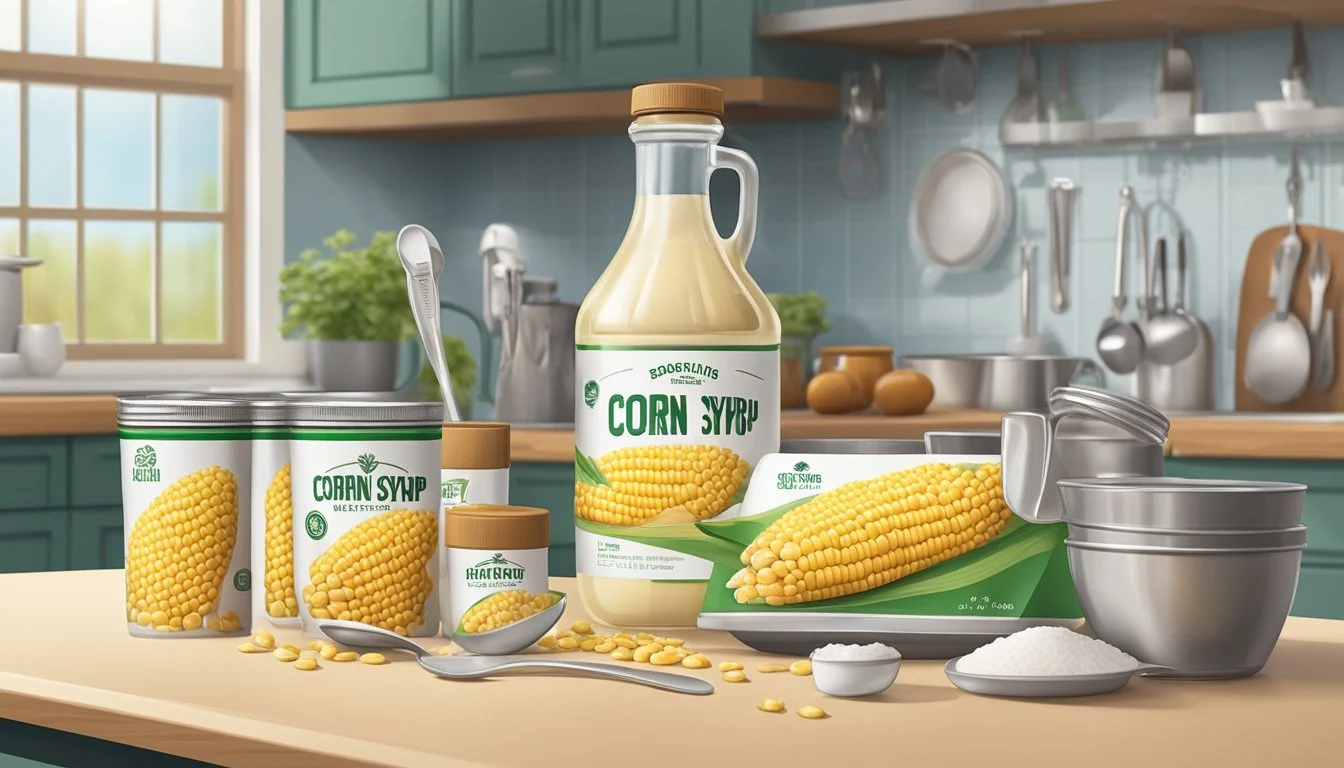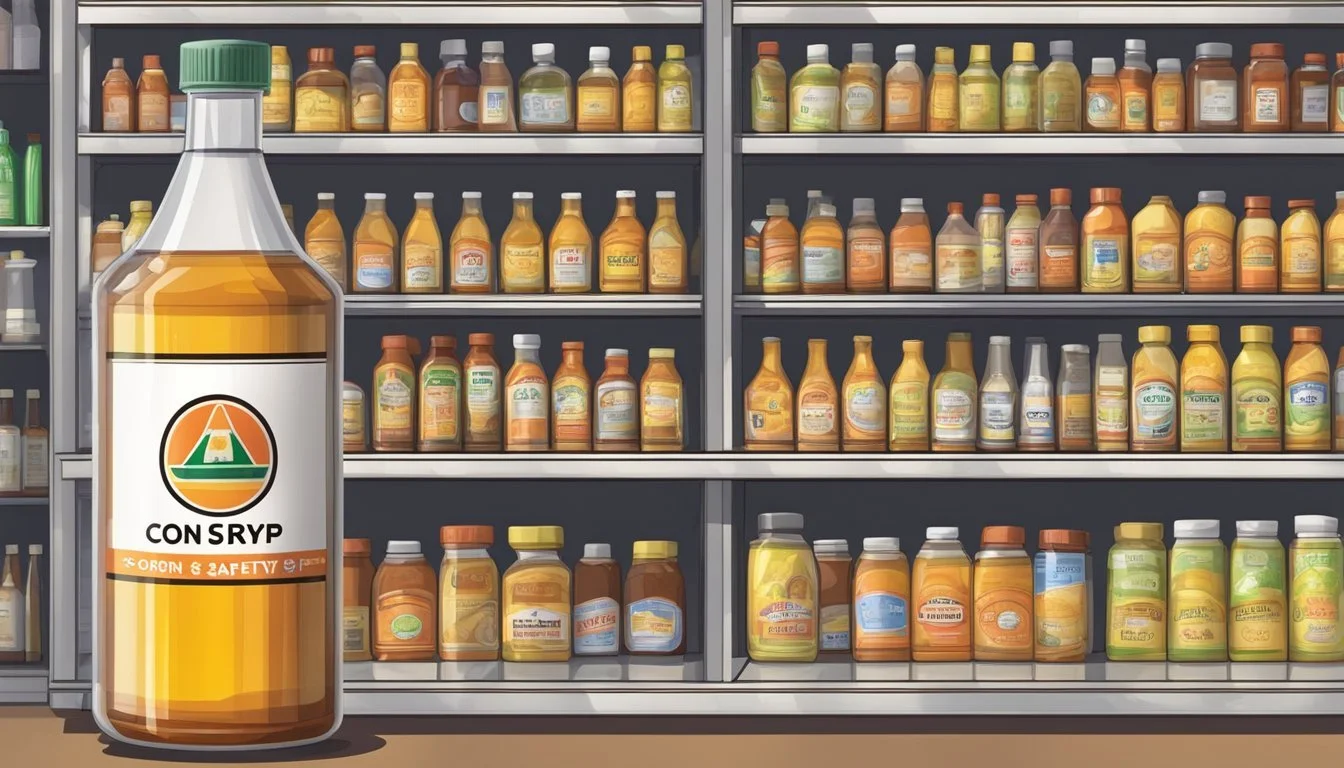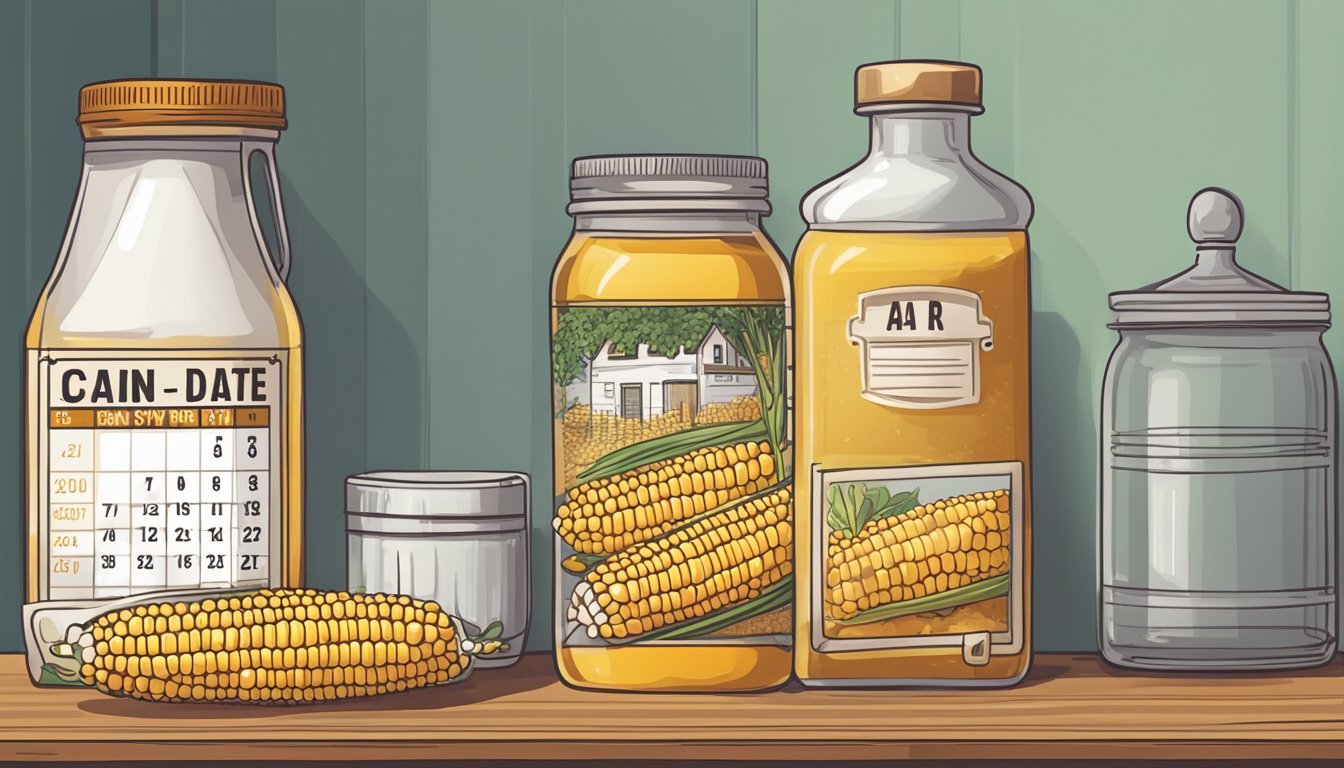How Long Does Corn Syrup Last?
Shelf Life and Storage Tips
Corn syrup(how long does corn syrup last?) is a common ingredient in many kitchen pantries, known for its role as a versatile sweetener in cooking and baking. It possesses a remarkable shelf life due to its high sugar (how long does sugar last?) concentration, which naturally inhibits the growth of microorganisms. When properly stored in a cool, dry place in a tightly sealed container, corn syrup can retain its quality for an extended period.
Unlike many food items that degrade soon after their expiration date, corn syrup maintains its usability well beyond that point if the storage conditions are optimal. It does not spoil easily; however, incorrect storage can lead to degradation in quality. Exposure to air and moisture, for instance, may result in crystallization or the development of mold. It's essential to handle corn syrup with care to prevent contamination from external particles, which might compromise its longevity.
The durability of corn syrup makes it a reliable ingredient for long-term use, with some sources suggesting that it can last indefinitely under ideal conditions. Nevertheless, consumers should always check for signs of spoilage or textural changes, which can indicate that the syrup is no longer at its best for consumption. Regular assessments of stored corn syrup will ensure that it remains a safe and effective ingredient when needed.
Understanding Corn Syrup
Corn syrup, a staple in many kitchens and industries, serves primarily as a versatile sweetener. It is derived from the processing of cornstarch into a clear and sugary liquid and is prevalent in a variety of culinary applications due to its ability to add moisture and maintain freshness.
Composition and Types
Corn syrup is primarily made up of glucose, which is a type of sugar molecule. Two main types of corn syrup are commonly used:
Light corn syrup: It is a clear syrup that has been flavored with vanilla and salt. This variety is often used in baking and cooking to provide a mild sweetness without altering the color of the finished product.
Dark corn syrup: This has a deeper color and stronger flavor due to the addition of molasses. It is richer and is often used in recipes that require a more robust flavor profile.
Additionally, there is a variant known as high fructose corn syrup (HFCS), which has undergone further processing to convert some of its glucose into fructose, making it sweeter.
Corn Syrup in the Food Industry
In the food industry, corn syrup is prized for its ability to resist crystallization and for its hygroscopic properties, meaning it attracts and holds water, which can improve the texture and shelf life of foods. The syrup is used in countless products such as:
Baked goods: Provides moisture and extends freshness.
Confections: Prevents sugar crystallization.
Condiments: Adds sweetness and smooth textures.
The composition of corn syrup offers a high calorie and carbohydrate content, making it a significant energy source but also a consideration in dietary planning where sugar intake may be a concern. It's a fundamental ingredient in the cooking and baking sectors due to its liquid sweetener characteristics, and continues to be a relevant item on the ingredient lists of many commercially produced foods.
Shelf Life of Corn Syrup
Corn syrup, used as a sweetener in culinary applications, typically exhibits a long shelf life if stored under optimal conditions.
General Shelf Life
The shelf life of an unopened container of corn syrup can be quite extensive, often lasting up to 2 years when stored in a suitable environment. An opened container’s longevity may vary, but it often maintains its quality for a considerable time.
Factors Affecting Shelf Life
Certain factors play a crucial role in preserving the shelf life of corn syrup:
Storage Conditions: Keeping corn syrup in a cool, dry place away from light is paramount. Ideal storage avoids locations that experience temperature fluctuations, as consistency helps in maintaining the syrup's viscosity and flavor.
Moisture and Air Exposure: It's essential to keep the container tightly sealed to prevent moisture and air from entering. These elements can contribute to crystallization and potential spoilage.
Temperature: While refrigeration is not required, keeping corn syrup at a stable room temperature is beneficial to prevent crystallization and to keep the syrup pourable.
By adhering to these guidelines, one can ensure the longevity and preservation of corn syrup's quality over time.
Storage Best Practices
Proper storage of corn syrup can significantly extend its shelf life. This section discusses how to best store corn syrup, considering location, temperature and light conditions, as well as whether to refrigerate or freeze it.
Storage Locations
One should store corn syrup in a cool, dry place such as a pantry or kitchen cabinet. Ensuring the location is away from any heat sources helps maintain the syrup's quality.
Temperature and Light Conditions
Corn syrup should be kept at room temperature, which typically ranges from 68°F to 72°F (20°C to 22°C). It's imperative to avoid exposure to direct sunlight, as this can degrade the syrup's quality over time.
Refrigeration and Freezing
While it is not necessary to refrigerate corn syrup, doing so may extend its shelf life. Refrigeration is particularly recommended in airtight containers if the syrup will not be used quickly. Refrigeration helps preserve its quality but is not required for safety. Freezing corn syrup is not advised, as it can lead to changes in texture and consistency.
Identifying Spoilage
When assessing whether corn syrup has spoiled, it's important to examine noticeable changes in appearance and consistency, as well as to detect any alterations in smell and taste.
Visual and Texture Changes
The appearance of corn syrup can be a reliable indicator of its condition. Typically, properly stored corn syrup should be clear and smooth. Signs of spoilage include:
Cloudiness: If the syrup becomes cloudy, it could suggest contamination.
Consistency: Corn syrup should have a thick, viscous texture. If it begins to crystallize, this could denote age or improper storage, although it might still be safe to consume after gently warming it to dissolve the crystals.
Odor and Taste Alterations
The odor and taste of corn syrup are essential for determining spoilage:
Smell: A fresh bottle of corn syrup should have a mild, sweet aroma. An unpleasant odor or any deviation from the usual smell could point to spoilage.
Taste: If the sweetness of the syrup is off or it has an unpleasant taste, it should not be used. Spoiled corn syrup might not necessarily be harmful, but it can affect the quality of the final product if used in cooking or baking.
Health and Safety Considerations
When dealing with corn syrup, it's essential for consumers to be aware of how to determine safe consumption and to understand the risks associated with expired products to ensure food safety and maintain quality.
Safe Consumption
Corn syrup typically has a long shelf life and does not spoil easily due to its high sugar content, which acts as a preservative. However, it's crucial to store corn syrup in a cool, dry place and always keep the container tightly sealed. To ensure it's safe for use, individuals should:
Look for signs of mold or fermentation, such as strange odors, off flavors, or gas bubbles.
Inspect the syrup for any discoloration or changes in texture.
Risks of Expired Corn Syrup
Even though corn syrup may be safe to consume well after its expiration date if stored properly, there are risks if it becomes contaminated. Consuming compromised corn syrup can lead to:
Growth of harmful bacteria which may not always be visible or detectable through smell or taste.
Potential health issues related to the presence of bacteria, which could result in foodborne illnesses.
It is advised to discard any corn syrup that shows signs of spoilage or contamination to mitigate these risks.
Maximizing Corn Syrup Quality
To ensure that corn syrup retains its peak quality, it is important to consider the storage and handling practices after purchase. Maintaining the desirable flavor and consistency of corn syrup is achievable with proper care.
Preserving Flavor and Consistency
The quality of corn syrup is strongly influenced by how it is stored. It is ideal to store the syrup in cool and dry conditions to prevent any degradation of flavor and texture. Here is a simple guideline to preserve the integrity of corn syrup:
Sealed Container: Always keep corn syrup in an airtight container to prevent exposure to air, which can lead to crystallization.
Storage Location: Select a location away from direct sunlight and any heat sources. A pantry or a cupboard is usually suitable.
Temperature: Store at a stable, moderate temperature, as fluctuations can affect the thick consistency of the syrup.
Clean Usage: Use clean utensils to avoid contaminating the syrup with food particles, which could introduce bacteria and lead to spoilage.
By following these steps, one can maintain the flavor and consistency of corn syrup, ensuring it stays at its best up to its best by date and often beyond, as the product is generally stable.
Substitutes and Alternatives
When replacing corn syrup in various recipes, the goal is to maintain the sweet profile while considering the textural implications. Understanding the attributes and impact of different sweeteners ensures successful culinary results.
Substituting Corn Syrup in Recipes
Substitutes for corn syrup must provide similar sweetness and moisture characteristics. Maple syrup and molasses offer distinct flavors and can replace corn syrup in recipes, especially those requiring a caramel note. High-fructose corn syrup should be used cautiously due to its higher sweetness level. Here are substitutes and their ideal uses:
Maple Syrup: Works well in baking, imparting a rich, distinct flavor often suitable for pies and pancakes.
Molasses: Offers a robust flavor; best for hearty baked goods like gingerbread.
For confectionary purposes, glucose syrup is preferred due to its similar chemical properties, preventing crystallization much like corn syrup.
Comparing Sweeteners
Sweeteners vary in flavor, nutritional content, and how they react under heat. When baking, table sugar, if used as a substitute, might change the texture and firmness of the final product. Here is a brief comparison:
Table Sugar (Sucrose): A granulated sweetener that can create a crisper, crunchier texture in baked goods.
Glucose Syrup: A close alternative that provides consistency similar to corn syrup in candies and glazes without altering taste.
The choice of substitute will depend on the final desired outcome in terms of flavor, texture, and appearance.
FAQs on Corn Syrup
This section addresses common inquiries and clarifies the truths and myths regarding the shelf life and storage of corn syrup.
Common Questions
How long does corn syrup last?
Unopened corn syrup can last indefinitely when stored in a cool, dry place, typically retaining quality until the best-by date and often well beyond. Once opened, light corn syrup is best used within two weeks, while dark corn syrup should be used within a month for optimal quality.
Is corn syrup gluten-free?
Yes, pure corn syrup is gluten-free as it is derived from corn and does not contain any wheat, barley, or rye.
Myths and Misconceptions
Myth: Corn syrup and high-fructose corn syrup are the same.
Fact: Although both are made from corn, corn syrup is primarily glucose, while high-fructose corn syrup has had some of its glucose converted to fructose to enhance sweetness.
Misconception: Corn syrup doesn't have an expiration date.
Truth: Corn syrup does come with a best-by date, which is the manufacturer's estimate of how long the product will remain at peak quality. While corn syrup doesn't spoil in the traditional sense, its quality may deteriorate over time after this date.








